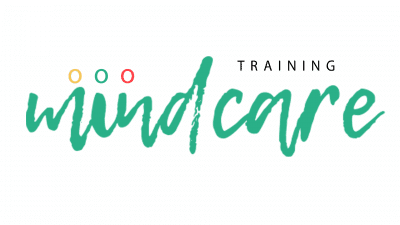Becoming the Most Effective MHFAider: Steps to Provide Initial Support in Mental Health Crises
Becoming the Most Effective MHFAider: Steps to Provide Initial Support in Mental Health Crises
-
Attend MHFA Training:
Attending a formal MHFA training course is highly recommended. These courses are designed to provide participants with comprehensive knowledge and practical skills to effectively support someone in a mental health crisis. MHFA courses are typically offered by certified trainers and cover topics such as recognising the signs of mental illness, providing initial help, and guiding individuals to appropriate professional help.
-
Practice Active Listening:
One of the most crucial skills for an MHFAider is active listening. When someone is experiencing a mental health crisis, it is essential to provide them with a safe space to express their thoughts and feelings. Practice active listening by giving your full attention, maintaining eye contact, and using non-verbal cues to show that you are engaged. Avoid interrupting or judging, and instead, focus on understanding the person’s perspective.
-
Develop Empathy and Compassion:
To be an effective MHFAider, it is crucial to develop empathy and compassion towards individuals experiencing mental health challenges. Put yourself in their shoes and try to understand their emotions and struggles. Show genuine concern and offer support without judgment. Remember, a little empathy can go a long way in helping someone feel heard and understood.
-
Stay Up-to-Date:
Mental health is a constantly evolving field, and new research and information emerge regularly. To be an effective MHFAider, it is essential to stay up-to-date with the latest developments in mental health from reputable sources such as Mind, NHS or Nice guidelines. Subscribe to reputable mental health newsletters, follow mental health organisations on social media, and attend workshops or webinars to expand your knowledge and skills.
-
Practice Self-Care:
Supporting others in mental health crises can be emotionally draining. To be an effective MHFAider, it is crucial to prioritise your own mental well-being. Practice self-care regularly by engaging in activities that recharge you, such as exercise, hobbies, or spending time with loved ones. Take breaks when needed and seek support from your own network when you feel overwhelmed.
-
Foster a Supportive Environment:
Lastly, as an MHFAider, you have the power to create a supportive environment for those around you. Encourage open conversations about mental health, challenge stigma, and promote understanding and acceptance. By fostering a supportive environment, you can help reduce the barriers that individuals face when seeking help and make a positive impact on the overall mental health of your community.
Becoming an effective MHFAider is an ongoing journey that requires continuous learning and practice. By following these steps and committing to improving your skills, you can make a significant difference in the lives of those experiencing poor mental health and mental health crises.
-
Get Proper Training
The first and most crucial step towards becoming an effective MHFAider is to undergo proper training. MHFA courses provide comprehensive education on various mental health conditions, crisis intervention techniques, and strategies for providing support. Look for certified MHFA training programs; sign up at https://mindcaretraining.com/ .
During the training, you will learn about different mental health disorders such as depression, anxiety, substance abuse, and psychosis. You will also gain insights into the signs and symptoms of these conditions, risk factors, and how to approach someone who may be in distress.
Remember, MHFA training equips you with the necessary knowledge and skills to support someone in crisis, but it does not make you a mental health professional. It is essential to understand your role as a first aider and know when to seek professional help for the person you are assisting.
The training program typically consists of both theoretical and practical components. The theoretical part includes lectures, presentations, and discussions that provide a deep understanding of mental health issues. You will learn about the prevalence of mental health problems, the impact they have on individuals and society, and the importance of early intervention.
Additionally, you will be taught various crisis intervention techniques that can be used to de-escalate a situation and provide immediate support to someone in distress. These techniques may include active listening, empathetic communication, and non-judgmental attitude.
In the practical component of the training, you will have the opportunity to apply the knowledge and skills you have learned in simulated scenarios. These scenarios are taken from real-life situations where you may encounter someone experiencing a mental health crisis. Through role-playing exercises, you will practice assessing the situation, providing appropriate support, and referring the person to professional help if necessary.
Furthermore, MHFA training also emphasises the importance of self-care for the MHFAider. Taking care of your own mental health is crucial when dealing with the challenges of supporting others in crisis. The training program will provide strategies and resources for self-care, teaching you how to recognise and manage your own emotions and stress levels.
Upon completing the MHFA training, you will receive a certification that recognises your competence in providing mental health first aid. This certification can be a valuable asset in various settings, such as workplaces, schools, and community organizations.
In conclusion, getting proper training in MHFA is the foundation for becoming an effective MHFAider. Through comprehensive education and practical application, you will acquire the knowledge, skills, and confidence to support individuals experiencing mental health crises. Remember, MHFA is not a substitute for professional help, but it can make a significant difference in someone’s life by providing immediate support and connecting them to the appropriate resources.
-
Practice Active Listening
Active listening is a fundamental skill for any MHFAider. When someone is experiencing a mental health crisis, it is crucial to provide them with a safe and non-judgmental space to express their thoughts and feelings. Active listening involves giving your full attention, maintaining eye contact, and showing empathy towards the person.
Practice active listening by focusing on the person’s words, body language, and emotions. Avoid interrupting or offering advice unless specifically asked. Reflect back what the person is saying to ensure you understand their perspective. This approach helps the individual feel heard and validated, which can be incredibly comforting during a crisis.
Active listening is not just about hearing the words being spoken; it is about understanding the underlying emotions and thoughts behind them. By actively listening, you are showing the person that you genuinely care about their well-being and are willing to support them through their struggles.
One way to practice active listening is to use open-ended questions to encourage the person to share more about their experiences. These questions allow the individual to express themselves freely and can help you gain a deeper understanding of their situation. For example, instead of asking, “Are you feeling okay?” you can ask, “How have you been feeling lately?” This type of question invites a more detailed and honest response.
During the conversation, it is important to be mindful of your body language. Maintain an open and relaxed posture, leaning slightly towards the person to show that you are engaged and interested. Nodding your head and using facial expressions to convey understanding can also be helpful. However, be cautious not to overdo it or come across as insincere.
Additionally, active listening involves validating the person’s feelings and experiences. You can do this by acknowledging their emotions and letting them know that it is okay to feel the way they do. Phrases such as “I can understand why you might feel that way” or “It sounds like you’re going through a tough time” can provide reassurance and help build trust.
Remember, active listening is an ongoing process of continuous improvement. It takes practice and effort to become a skilled active listener. The more you engage in active listening, the better equipped you will be to support individuals in crisis and provide them with the empathy and understanding they need.
-
Be Aware of Your Own Limitations
While MHFA training prepares you to provide initial support, it is essential to recognise your own limitations. Mental health is a complex field, and each person’s experience is unique. As an MHFAider, you are not expected to diagnose or treat mental health conditions. In fact it is vital that you signpost to professionals when a situation beyond the remit of MHFAider is being supported.
Knowing when to refer someone to a mental health professional is crucial. If you encounter a situation that is beyond your scope of practice or expertise, it is important to encourage the person to seek professional help. Provide them with information about local mental health resources, helplines, or counselling services that can offer them the assistance they need.
Additionally, it is important to be aware of the boundaries of your role as an MHFAider. While you may have gained valuable knowledge and skills through your training, it is important to remember that you are not a substitute for a mental health professional. Your role is to provide initial support and help individuals connect with the appropriate resources.
It is also crucial to recognise the importance of self-care in this role. Supporting others through their mental health challenges can be emotionally demanding, and it is important to prioritise your own well-being. This may involve seeking support from your own network, engaging in activities that recharge you, or seeking professional supervision or debriefing sessions to process any challenging situations you may have encountered.
Furthermore, staying up-to-date with the latest research and developments in the field of mental health can enhance your effectiveness as an MHFAider. By continuously learning and expanding your knowledge, you can better understand the complexities of mental health and provide more informed support to those in need.
In conclusion, being aware of your own limitations as an MHFAider is crucial for providing effective and responsible support. Recognising when to refer someone to a mental health professional, understanding the boundaries of your role, prioritising self-care, and staying informed are all essential components of being an effective MHFAider. By embracing these principles, you can make a significant difference in the lives of those struggling with mental health challenges.
-
Stay Informed and Updated
Mental health is a constantly evolving field, and new research and treatments emerge regularly. To be an effective MHFAider, it is important to stay informed and updated on the latest developments in mental health.
Subscribe to reputable mental health websites, read books and articles written by experts, and attend workshops or webinars related to mental health. This ongoing education will enhance your knowledge and enable you to provide the most up-to-date support to those in need.
One way to stay informed is by following mental health organisations and professionals on social media platforms. Many mental health experts and organisations share valuable insights, research findings, and resources through their social media channels. By following them, you can receive regular updates and stay connected to the latest information in the field.
Additionally, consider joining professional associations or networks that focus on mental health. These organisations often offer newsletters, conferences, and online forums where members can exchange knowledge and stay updated on current trends. Engaging with these communities can provide opportunities for learning and networking with other professionals in the field.
Furthermore, make it a habit to regularly read scientific journals and publications dedicated to mental health. These sources often publish groundbreaking research studies and clinical trials that can significantly contribute to your understanding of mental health conditions and treatment approaches. By staying up-to-date with the latest research, you can ensure that your support is evidence-based and aligned with best practices.
Lastly, attending conferences, workshops, and webinars related to mental health can be an excellent way to expand your knowledge and skills. These events often feature renowned experts who share their expertise and insights on various aspects of mental health. Additionally, they provide opportunities for networking and connecting with other professionals in the field, allowing you to exchange ideas and learn from each other’s experiences.
By actively seeking out and engaging in ongoing education and professional development, you can continuously enhance your knowledge and skills as an MHFAider. This commitment to staying informed and updated will enable you to provide the highest quality of support to individuals experiencing mental health challenges.
Additionally, seeking support from others is essential in maintaining your own mental well-being. Surround yourself with a strong support system of friends, family, or colleagues who understand the challenges you face in your role as a mental health support provider.
Regularly checking in with a therapist or counsellor can also be beneficial. They can provide you with a safe space to process your own emotions and help you develop healthy coping mechanisms to manage any stress or burnout that may arise. SHOUT also offer a 24/7 help line to MHFAiders to support their processing of difficult conversations. Text MHFAE to 85258.
It is important to acknowledge that self-care is not a luxury but a necessity. Taking time for yourself is not selfish; it is an act of self-preservation. By prioritising your own well-being, you are better equipped to support others in their mental health journeys.
Remember to listen to your body and mind. If you start feeling overwhelmed or exhausted, it is crucial to take a step back and give yourself the time and space to recharge. This may mean taking a day off work, scheduling a self-care day, or simply allowing yourself to rest.
Furthermore, practicing self-care extends beyond just physical and mental well-being. It also involves setting healthy boundaries in your professional and personal life. Learn to say no when you feel overwhelmed or when a request is beyond your capacity. Setting boundaries allows you to maintain a healthy work-life balance and avoid burnout.
Lastly, don’t forget to celebrate your successes. Providing support to individuals in mental distress can be challenging, but it is also incredibly rewarding. Take the time to acknowledge the positive impact you have made in someone’s life. Celebrate the small victories and remind yourself of the difference you are making.
By practicing self-care, seeking support, setting boundaries, and celebrating your successes, you can ensure that you are in the best possible position to provide effective and compassionate support to those in need. Remember, you cannot pour from an empty cup, so take care of yourself first.
Signs of a Competent Mental Health First Aider
Being a competent MHFAider involves more than just completing a training course. Here are some signs that indicate you are a competent mental health first aider:
- Confidence:You feel confident in your ability to provide initial support to someone experiencing a mental health crisis. This confidence allows you to approach the situation calmly and assertively, providing reassurance to the individual in need.
- Empathy:You are able to empathise with the person’s emotions and create a safe space for them to express themselves. Your ability to understand and validate their feelings helps establish trust and encourages open communication.
- Non-judgmental attitude:You approach each situation without judgment, respecting the individual’s experiences and choices. This non-judgmental attitude creates a supportive environment where the person feels comfortable sharing their thoughts and emotions without fear of being criticised.
- Active listening skills:You actively listen to the person, giving them your full attention and reflecting back what they are saying. This active listening allows you to understand their perspective fully and respond appropriately, showing that you genuinely care about their well-being.
- Knowledge:You have a solid understanding of various mental health conditions, their signs and symptoms, and appropriate crisis intervention techniques. This knowledge enables you to recognise when someone is in distress and provide them with the necessary support and resources.
- Self-awareness:You are aware of your own limitations and know when to seek professional help for the person in need. Recognising when a situation requires additional expertise ensures that the individual receives the appropriate level of care and support.
- Continued learning:You stay informed and updated on the latest developments in mental health to provide the most relevant support. This commitment to ongoing learning allows you to adapt your approach and interventions based on the latest research and best practices.
- Self-care:You prioritise your own well-being and practice self-care to avoid burnout and compassion fatigue. Taking care of yourself ensures that you can continue to provide effective support to others without compromising your own mental and emotional health.
Becoming an effective MHFAider is a journey that requires ongoing learning and practice. By following these steps and embodying the qualities of a competent mental health first aider, you can make a significant difference in the lives of those experiencing mental health challenges. Your ability to provide compassionate and knowledgeable support can help individuals navigate their mental health journey and promote overall well-being.


